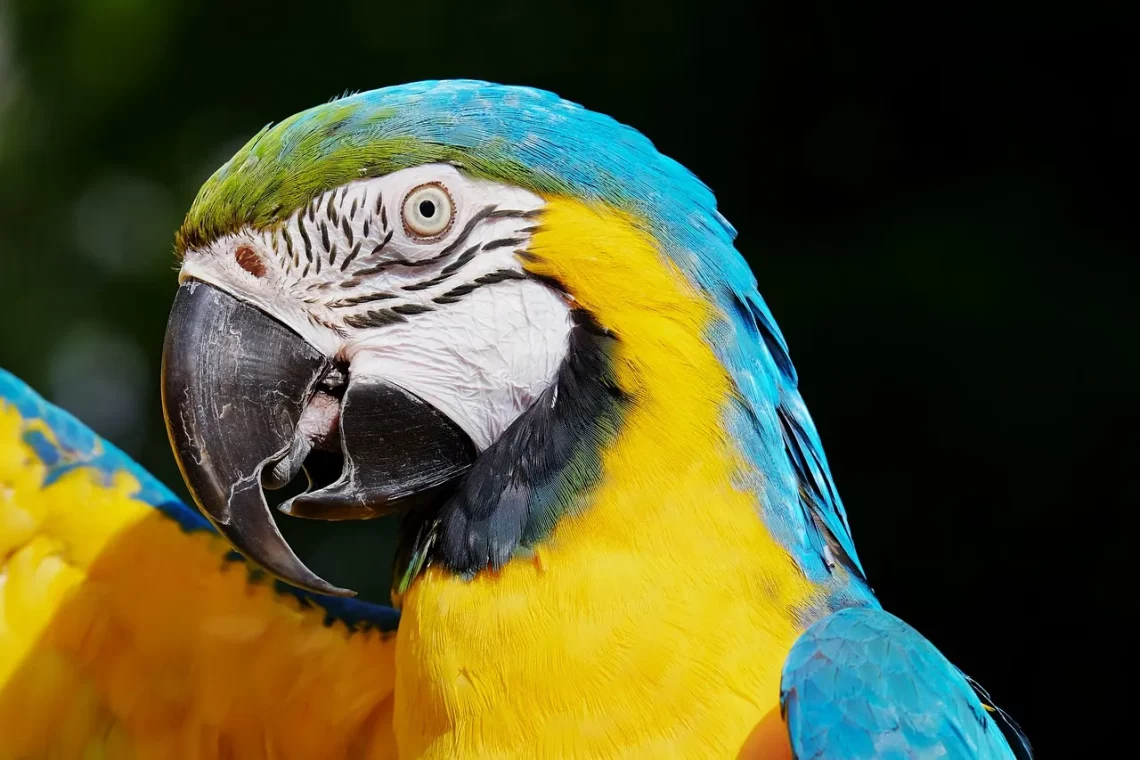
The Delightful World of Small Parrot Birds as Pets
The delightful world of small parrot birds is an enchanting realm filled with vibrant colors, playful personalities, and a captivating range of sounds. These charming creatures have captured the hearts of many pet lovers, becoming increasingly popular in households around the globe. Their lively nature and sociable demeanor make them not just pets but also companions that can bring joy and entertainment into our lives.
Small parrots are known for their intelligence and ability to mimic sounds, which adds a unique element to their presence. They thrive on interaction and can form strong bonds with their human caretakers. It’s fascinating to observe them as they explore their surroundings, play with toys, and engage in various activities that showcase their playful spirit.
Beyond their delightful antics, small parrots also require a certain level of care and attention to ensure they lead happy, healthy lives. Understanding their needs and behavior is essential for anyone considering welcoming one into their home. These birds not only provide companionship but can also enrich our lives with their charming quirks and vibrant personalities.
As we delve deeper into this captivating world, we will explore various aspects of small parrot ownership, from their ideal habitats to their dietary requirements, and the joys they bring to our lives.
Choosing the Right Small Parrot for Your Home
Selecting the perfect small parrot can be a delightful yet daunting task. With various species available, each with its unique traits, understanding what fits your lifestyle is crucial. Among the most popular small parrots are budgerigars, lovebirds, and cockatiels.
Budgerigars, commonly known as budgies, are friendly, social, and relatively easy to care for, making them an excellent choice for first-time parrot owners. They come in various colors and can be trained to mimic speech. Lovebirds, on the other hand, are known for their affectionate nature and strong pair bonds. They thrive in pairs but can also bond closely with their human companions. Cockatiels are known for their charming whistles and playful antics, making them a favorite among bird enthusiasts.
When considering which small parrot to adopt, think about your living situation, daily schedule, and how much time you can dedicate to interaction. Some species require more socialization and mental stimulation than others, so it’s essential to choose one that matches your lifestyle.
Furthermore, consider adoption from rescue organizations or shelters, as many birds need loving homes. This not only gives a bird a second chance but also can be a rewarding experience for you as a pet owner. Always conduct thorough research on the specific needs and characteristics of the parrot species you are interested in to ensure a harmonious and fulfilling relationship.
Creating a Comfortable Habitat for Your Parrot
Once you have chosen the right small parrot, creating a comfortable and stimulating habitat is essential for its well-being. The first step is selecting an appropriate cage. The cage should be spacious enough to allow your parrot to spread its wings and move around freely. A larger cage will also provide room for toys and perches, which are vital for mental stimulation and physical health.
Perches should be made from various materials to promote healthy feet and provide different textures for your parrot to explore. Natural wood perches are a great option, as they mimic their natural environment. Additionally, include a variety of toys that encourage play and exploration. Rotate the toys regularly to keep your parrot engaged and prevent boredom.
Lighting is another crucial aspect of your parrot’s habitat. Natural sunlight is beneficial, so placing the cage in a well-lit area is ideal. However, ensure there are shaded spots where the bird can retreat if it gets too warm. If natural light isn’t available, consider using full-spectrum lighting to mimic sunlight and support your parrot’s health.
Feeding is also an integral part of a comfortable habitat. Provide a balanced diet that includes high-quality pellets, fresh fruits, and vegetables. Avoid harmful foods like avocado and chocolate, which can be toxic to birds. Fresh water should be available at all times, and it’s important to clean the food and water dishes daily to maintain hygiene.
Lastly, ensure that the environment is safe and free from hazards. Keep toxic plants, chemicals, and small objects out of reach. Regularly check the cage for any potential dangers, and create a safe space where your parrot can explore outside of its cage under supervision.
The Joys of Bonding with Your Parrot
One of the most rewarding aspects of having a small parrot as a pet is the bond that develops between you and your feathered friend. Parrots are social creatures and thrive on interaction. Spending quality time with your parrot not only strengthens your relationship but also enhances its overall well-being.
Engaging in daily activities such as talking, singing, and playing with your parrot can significantly impact its happiness. Many parrots enjoy learning tricks and can be taught to perform various behaviors through positive reinforcement. This not only provides mental stimulation but also deepens the bond between you and your bird.
Socialization is crucial for a parrot’s development. Allow your parrot to interact with different people, environments, and even other animals, if possible. This exposure helps prevent behavioral problems and promotes a well-adjusted pet. Be patient, as building trust can take time, especially with more timid or shy species.
Understanding your parrot’s body language is also vital. Parrots communicate their feelings through their posture, vocalizations, and movements. Observing these cues will help you respond appropriately to their needs and emotions, further strengthening your bond.
Incorporating enrichment activities, such as foraging opportunities or puzzle toys, can enhance your parrot’s quality of life and stimulate its mind. These activities mimic natural behaviors and keep your parrot engaged and happy.
Ultimately, the joy of bonding with a small parrot lies in the unique personality each bird brings to your home. Their playful nature and ability to connect with humans make them exceptional companions that can bring endless joy and laughter into your life.
Understanding Your Parrot’s Health Needs
Caring for a small parrot extends beyond providing food and shelter; it also involves understanding and meeting their health needs. Regular veterinary check-ups are essential to monitor your parrot’s overall health and detect any potential issues early. Choose an avian veterinarian who specializes in birds to ensure your pet receives the best care possible.
A healthy diet is a cornerstone of your parrot’s well-being. Providing a balanced diet rich in nutrients supports your parrot’s immune system, feather health, and overall vitality. Be cautious about the types of foods you offer, as some human foods can be toxic. Familiarize yourself with safe and unsafe foods to keep your parrot healthy and happy.
Observe your parrot for any signs of illness, such as changes in appetite, lethargy, or abnormal droppings. Early detection of health issues can make a significant difference in treatment outcomes. If you notice any concerning symptoms, consult your veterinarian promptly.
Additionally, environmental factors can influence your parrot’s health. Ensure that the living space is clean and free from harmful substances. Avoid exposing your bird to drafts, extreme temperatures, or toxic fumes from cooking, cleaning products, or smoking.
Mental health is equally important for your parrot. A bored or lonely bird may develop behavioral issues, such as feather plucking or excessive screaming. Providing stimulation through toys, social interaction, and training can help prevent these problems.
In conclusion, understanding your small parrot’s health needs and being proactive about their care can lead to a long, fulfilling life together. Regular vet visits, a balanced diet, and mental stimulation are key components to ensuring your feathered friend remains healthy and happy.
**Disclaimer: This article is for informational purposes only and does not constitute medical advice. For any health concerns regarding your pet, please consult a qualified veterinarian.**




